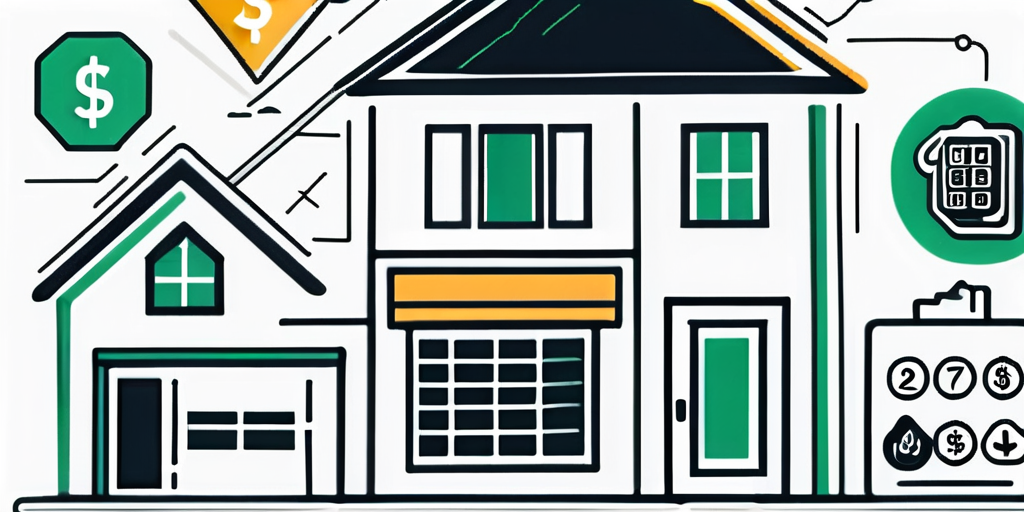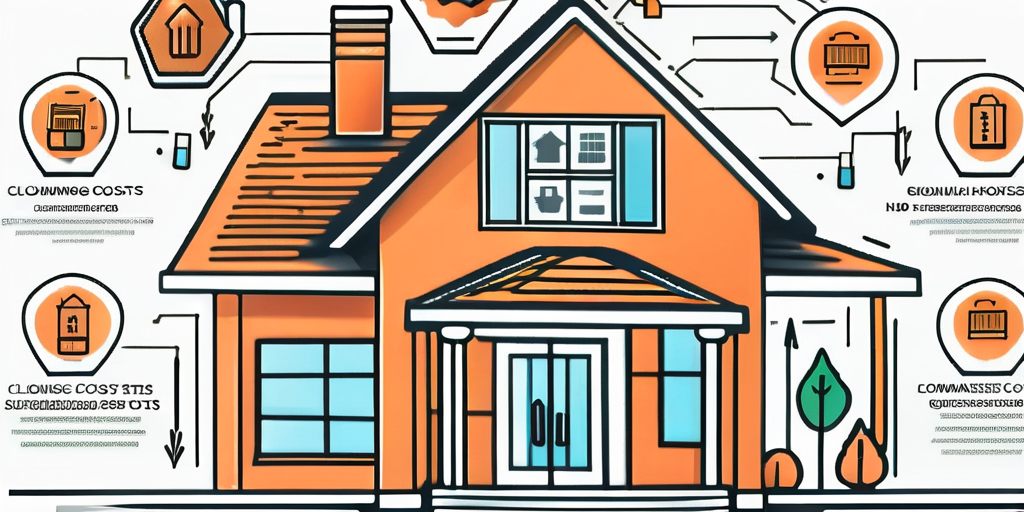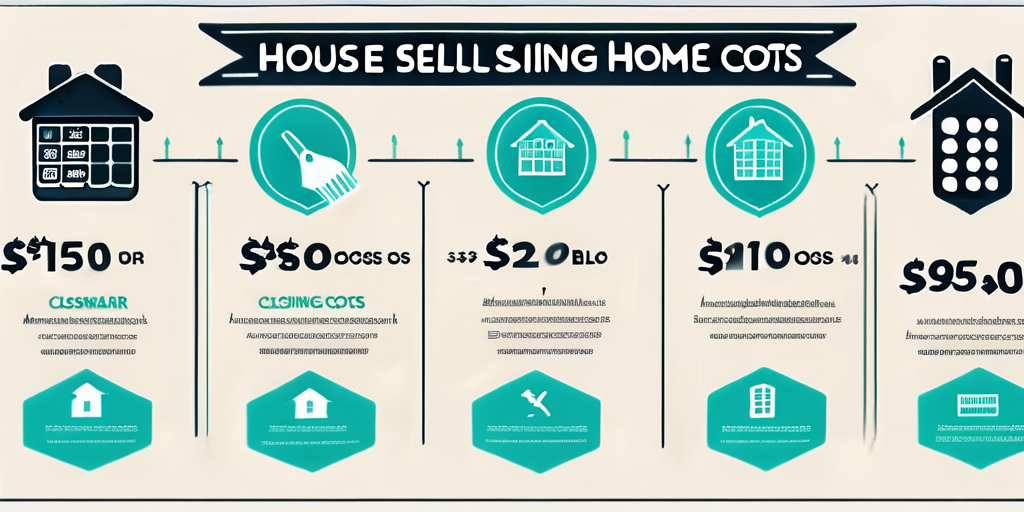Understanding Closing Costs When Selling a Home
When it comes to selling a home, many homeowners are focused on maximizing their profit and attracting potential buyers. However, an essential aspect of the process often overlooked is the closing costs. Understanding these costs is crucial, as they can significantly impact your net proceeds. This article will guide you through the basics of closing costs, help you estimate them, and provide strategies to minimize these expenses.
The Basics of Closing Costs
What are Closing Costs?
Closing costs are various fees and expenses that both buyers and sellers incur during a real estate transaction, typically at the closing of the deal. These costs can include numerous different components, from administrative fees to service charges related to the sale. For sellers, understanding these costs is critical to effective financial planning.

To illustrate, consider a seller in San Diego listing their property for $600,000. While they may be excited about the price, they must not forget the closing costs that could amount to 6-10% of the sale price. These costs could chop down their expected profits significantly.
Who Pays for Closing Costs?
While buyers and sellers both encounter closing costs, it’s essential to note that sellers typically pay a more substantial portion. In many cases, the seller may be responsible for real estate agent commissions, title insurance, and any necessary repairs agreed upon in the contract.
For instance, if a seller in Ohio lists their property for $300,000, they might expect to pay around $18,000 in closing costs. However, negotiations can sometimes shift some responsibilities to the buyer, depending on market conditions. Therefore, understanding who is responsible can help sellers plan effectively.
Breakdown of Common Closing Costs
Real Estate Agent Commissions
One of the most significant components of closing costs is the real estate agent commissions. Typically, this fee amounts to 5-6% of the sale price and is split between the seller’s and buyer’s agents. For example, if your home sells for $500,000, you could be paying around $30,000 in commission alone.

Sellers can sometimes negotiate these costs, especially if they choose to work with a discount brokerage or if the listing agent has a proven track record of quick sales. Nonetheless, it is crucial to weigh the savings against potential service reductions.
Title Search Fees
Title search fees cover the cost of ensuring that the property title is clear from any liens or legal issues. This process typically involves a thorough investigation of public records, confirming ownership and identifying any claims against the property.
In real-world scenarios, a homeowner in Texas recently sold their property only to find a lingering lien from a previous owner, which they were able to clear before closing. Not only did conducting the title search beforehand save them from legal troubles, but it also saved the new buyer from future headaches.
Escrow Fees
Escrow fees are charged for the services rendered by the escrow company, which acts as a neutral third party in the transaction. They manage the funds involved and ensure that all contractual terms are met before the sale closes. Typically, the seller and buyer will share these expenses.
For instance, an Arizona seller might encounter escrow fees around $1,000. These costs can be mitigated if both parties negotiate and agree to split them or if one party, usually the buyer, takes on this expense to facilitate the closing.
How to Estimate Your Closing Costs
Calculating Potential Costs
Estimating your closing costs as a seller can be complex but is essential for financial preparedness. A good rule of thumb is to budget 6-10% of your sale price for closing costs. Break this down into categories like agent commissions, title fees, and miscellaneous costs to get a clearer picture.
A homeowner selling a house for $400,000 might calculate their costs as follows:
- Agent commissions: $24,000
- Title search fees: $1,500
- Escrow fees: $1,000
- Miscellaneous fees: $2,500
This seller could face upwards of $29,000 in closing fees, affecting their final net proceeds.
Using Online Estimators
Several online tools can help estimate closing costs quickly. These calculators use inputs like location, property value, and contract details to provide a ballpark figure of what the seller might expect to pay.
For example, a seller in Seattle can use a reputable online estimator to find that the typical closing costs in their area average around 1.5% to 2.5% of the home’s sale price. By entering various scenarios, they can develop strategies for their specific situation.
Ways to Reduce Closing Costs
Negotiating with Buyers
One effective way to minimize closing costs is through negotiation with buyers. Sellers can offer incentives, including covering some of the buyer’s closing costs, which might also sweeten the deal and facilitate a quicker sale.

Consider a seller in Florida who listed their home for $350,000. They agreed to pay a portion of the buyer's closing costs, ultimately leading to a faster transaction and saving them from additional carrying costs associated with their home.
Shopping Around for Services
It's wise for sellers to shop around for various services associated with closing, such as choosing the right title company or escrow service. By comparing fees, sellers can make informed decisions that directly affect their closing costs.
A California homeowner who saved $500 by selecting a more affordable title company effectively reduced their overall costs. This small decision made a considerable difference in their net proceeds.
The Impact of Closing Costs on Your Profit
Understanding Net Proceeds
Net proceeds are the actual amount of money a seller walks away with after all expenses, including closing costs, commissions, and any repairs, are deducted from the sale price. Understanding net proceeds is essential for homeowners to gauge their financial success from the sale.
Returning to our example of the San Diego seller, if they expected $600,000 but incurred $60,000 in closing costs, their net proceeds would run significantly lower than anticipated.
Planning for Closing Costs in Your Selling Strategy
Effective planning for closing costs should be integrated into your overall selling strategy. This could include budgeting for closing costs from the outset, negotiating these costs, and being open to reducing your selling price to accommodate buyers’ expectations.
The best way to approach selling a home is to assume closing costs will be significant, and be proactive in managing and understanding these expenses. By taking the time to plan, you can safeguard your profit margin and ensure a smoother selling process.
Maximize Your Sale with SmartSellersMatch.com
Ready to take control of your home-selling process and keep more money in your pocket? SmartSellersMatch.com empowers you to sell without a realtor, providing all the essential information and documents to ensure a successful and problem-free transaction. Begin by understanding the potential of your sale with our exclusive FSBO Market Score. This personalized score utilizes extensive data to assess your starting point and offers insights on enhancing your home's marketability. Don't let closing costs catch you off guard. Get an instant FSBO Market Score today and pave the way for a more profitable home sale!





